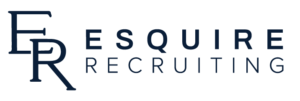Let’s Chat… Value in Soft Skills!
Welcome back, everyone! Hope you had a great week and are chugging toward the Spring with every next day. With the sun setting later, and daylight savings on the horizon, there is a renewed sense of hope in the air and refreshment around us! On that positive note, we’re excited to regroup on a topic that is everlasting in important in the workplace and corporate world…. soft skills! We often remind you of the resources to tap into online to take on new certificates, courses, licensing, or other valued attributes of your job. However, how do candidates differentiate themselves off of paper, during interviews, and distinguish across several hundred others? Keep reading to find out below!
What are Soft Skills?
Soft skills won’t look like something technical, for example, having proficiency working in Excel. However, your ability to network, advocate in interviews, communicate across all role levels, manage your time, empathize with coworkers, actively listen, and contribute to meetings, and the intangible assets you bring to the table are those that will define your soft skill competencies. These skills are heavily valued by recruiters, employers, and managers as they make up the, sometimes unmeasurable, aspects of employees who become distinguishably successful in organizations.
Another key attribute of soft skills is the way that they will impact any transition into a higher role (like going from individual contributor to manager), shifting into a new space (like going from Marketing to Operations), or meeting and onboarding teammates. Soft skills, not narrowly linked to a software platform or output, are those that can transfer into multiple areas. Take it this way… can you think of any corporate role that doesn’t include meeting invites and expectations to participate in group settings? Well, having strong communication, collaboration, and teamwork skills will integrate into success in any team setting!
Extra Tip: Especially as you phase college, volunteer, and other experiences out of your resume due to relevancy, make sure to always include a section for soft corporate skills! These will likely be the bridge that separates you from the next candidate and is super important to your overall profile and perception.
How do you grow your Soft Skills?
In reality, soft skills are less measurable and executable than ‘hard’ – you can’t take a test to measure your ability to empathize, or ask impactful questions in meetings. However, many corporate companies, as well as online platforms like LinkedIn, offer courses that employees can enroll in to improve upon these skills. Make sure to check in with your management to get a sense of the corporate buzz around your reputation, and identify certain skills where you have room for improvement. This way, you can be intentional when drafting a timeline and goal-setting for specific skills, as well as narrowing down online enrollment in courses to those most relevant to your development. Also, make sure to frequently check in with leadership about skills that are highly valued in future positions you may pursue, across your organization, or in other areas that you could transition into.
Check out the top 15 soft skills as defined by Workable…HERE!
Searching for a new role? Check out our open jobs list!



